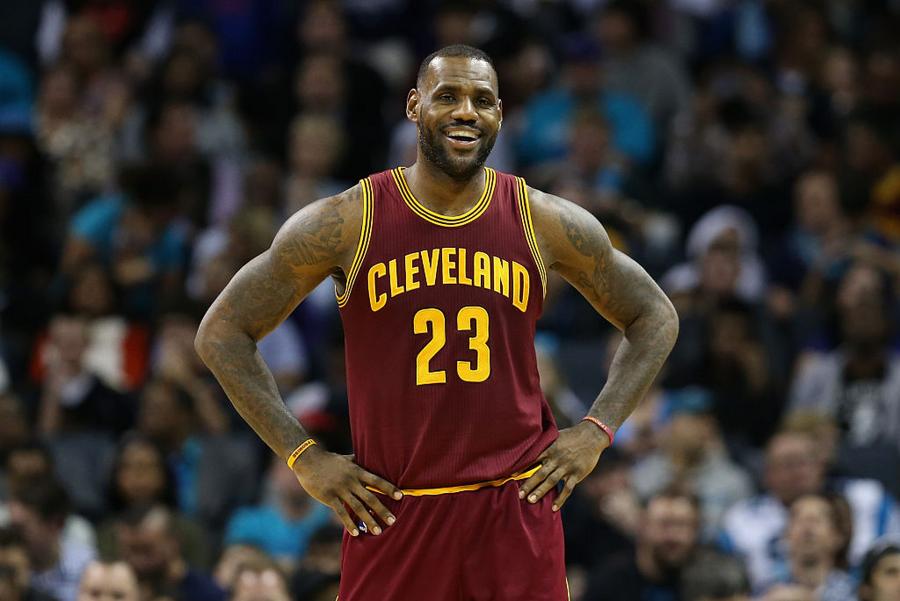When LeBron James signed a two-year contract with the Cleveland Cavaliers upon his return in 2014, there was a bit of confusion: why was he coming back for such a short period of time? Didn't he care about bringing a championship to Cleveland and staying for however long that took?
Of course, two years later, LeBron James has delivered on his championship promise, but it's become obvious that his shrewd contract negotiating is simply a way to get himself more money. Since the NBA salary cap rises each year, and max contracts for players are a percentage of the overall salary cap, James is getting himself a bigger piece of a larger pie. Predictably, he again opted out of his contract this year, forgoing $24 million to try and get more.
It's a genius strategy, really. LeBron is a freak of nature who's still playing at a very high level, and he has yet to sustain any kind of serious injury. By 2017, the Cavs will fully own LeBron's Bird Rights, which means they can offer him a five-year deal at the max of 35 percent of the cap, with 7.5 percent raises each year. The cap is also projected to rise to $107 million. LeBron could very well sign a five year, $204 million long-term contract following this season.
There's only one problem: An obscure, rarely-referenced NBA rule might prevent him from doing that.

Streeter Lecka/Getty Images
The rule, known as the "over 36 rule," prevents teams from "giving four- or five-year deals to players who are unlikely to play the life of the deal with no salary cap consequences." Since most players that age don't command a max salary, the rule hardly ever comes into play. But we've never seen someone like LeBron before, so naturally it could be an issue.
LeBron will be 32 next off-season. If he signed a five-year max deal with the Cavs, it would be all well and good until that fifth year, when his salary would be applied proportionately to previous seasons and count towards the team's cap. He couldn't apply any money for that last season to his first season of the deal in 2017-18, since he'd be making more than the max.
All hope isn't lost for LeBron, though. Since the Cavs don't own his full Bird Rights yet, he can only sign a four-year deal with them currently. If he wants that long-term security, he can sign a four-year, $140 million deal this summer.

Getty Images
Alternatively, he can do another "one and one" contract this offseason, making $27.5 million in 2016-17. Then, the following offseason, he could sign a four-year, $157 million deal.
There's one other option: staying the course with his plan and working his businessman magic at the next Collective Bargaining Agreement. Either the NBA players or the league can opt out of the current CBA on December 15, 2016. If that happens, the two sides will meet during the summer of 2017 to re-negotiate. Perhaps the players will re-work this particular rule so that James and other aging veterans over 36 can earn the max on four- or five-year deals.
That gamble would be the riskiest, but if LeBron wants to maximize his earnings – especially on his way to billionaire status – he may have to roll the dice a bit to change the current rule and get that coveted $200 million contract.
/2010/02/James-May-1.jpg)
/2015/02/GettyImages-519455520.jpg)
/2016/06/lbron.jpg)
/2017/12/GettyImages-898599200.jpg)
/2016/08/GettyImages-541547820.jpg)
/2018/03/GettyImages-929961688.jpg)
/2013/12/dan.jpg)
/2011/12/John-Mara-1.jpg)
/2020/08/gc-1.jpg)
:strip_exif()/2020/06/taylor.png)
/2011/12/Rooney-Mara1.jpg)
/2014/04/GettyImages-886617106.jpg)
/2020/03/favre.jpg)
/2010/12/kate-1.jpg)
/2022/10/peter-krause.jpg)
/2020/10/the-miz.png)
/2011/01/Aaron-Rodgers.jpg)
/2014/08/sp-1.jpg)
/2020/07/jared-kushner.jpg)
/2013/10/Bernadette-Peters-1.jpg)
/2010/03/emil.jpg)
/2016/01/Kirk-Cousins.jpg)
/2024/10/Jordan-Love-.jpg)